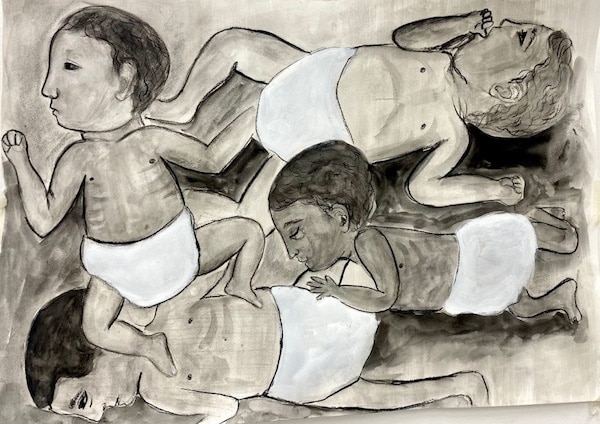Dear friends,
Greetings from the desk of Tricontinental: Institute for Social Research.
A study came out in December that made me cry. Titled Needs Study: Impact of War in Gaza on Children with Vulnerabilities and Families, it was conducted by the Community Training Centre for Crisis Management (CTCCM) in Gaza. Written in a clinical style, nothing about the language should have impacted me in the way that it did. But the study’s findings were shocking. Here are some of the cold facts:
- 79% of the children in Gaza suffer from nightmares.
- 87% of them experience severe fear.
- 38% report bedwetting.
- 49% of caregivers said that their children believed that they would die in the war.
- 96% of the children in Gaza felt that death was imminent.
Put simply, every single child in Gaza feels that they are going to die.
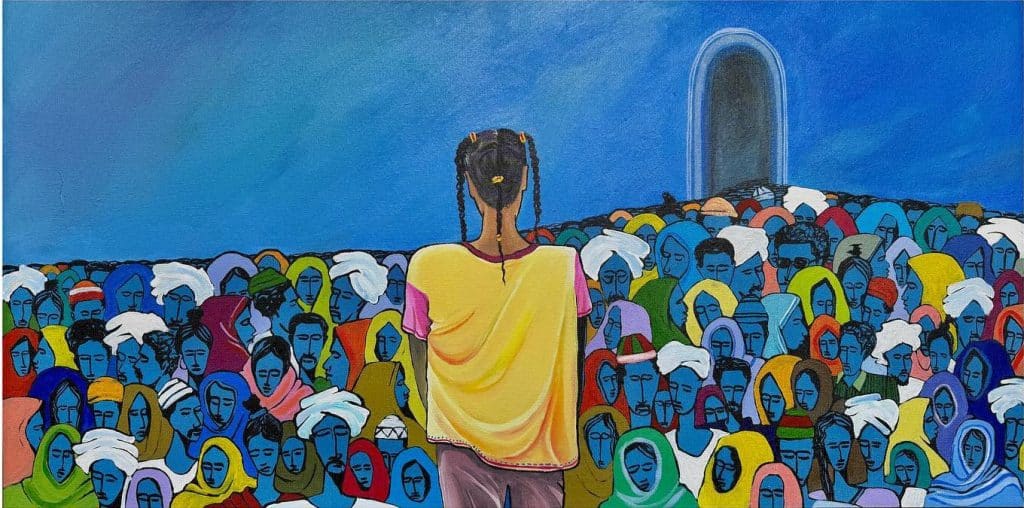
Galal Yousif Goly (Sudan), Untitled, 2024.
This newsletter, the first of 2025, could have ended after that last line. What more needs to be said? But there is more to say.
In March 2024, the United Nations Committee on the Rights of the Child released a sharp statement on the war in Sudan between the Sudanese Armed Forces and the paramilitary Rapid Support Forces, both backed by a range of foreign powers. That statement had its own powerful facts:
- 24 million children in Sudan – nearly half of the country’s total population of 50 million – are at risk of ‘generational catastrophe’.
- 19 million children are out of school.
- 4 million children are displaced.
- 3.7 million children are acutely malnourished.
The first point refers to the totality of Sudan’s children, all of whom are at risk of a ‘generational catastrophe’. This concept, which was first used by the United Nations to describe the trauma and setbacks that children experienced due to COVID-19 lockdowns, means that the children of Sudan will not recover from the ordeal that the war has inflicted upon them. It will take generations before anything resembling normality returns to the country.
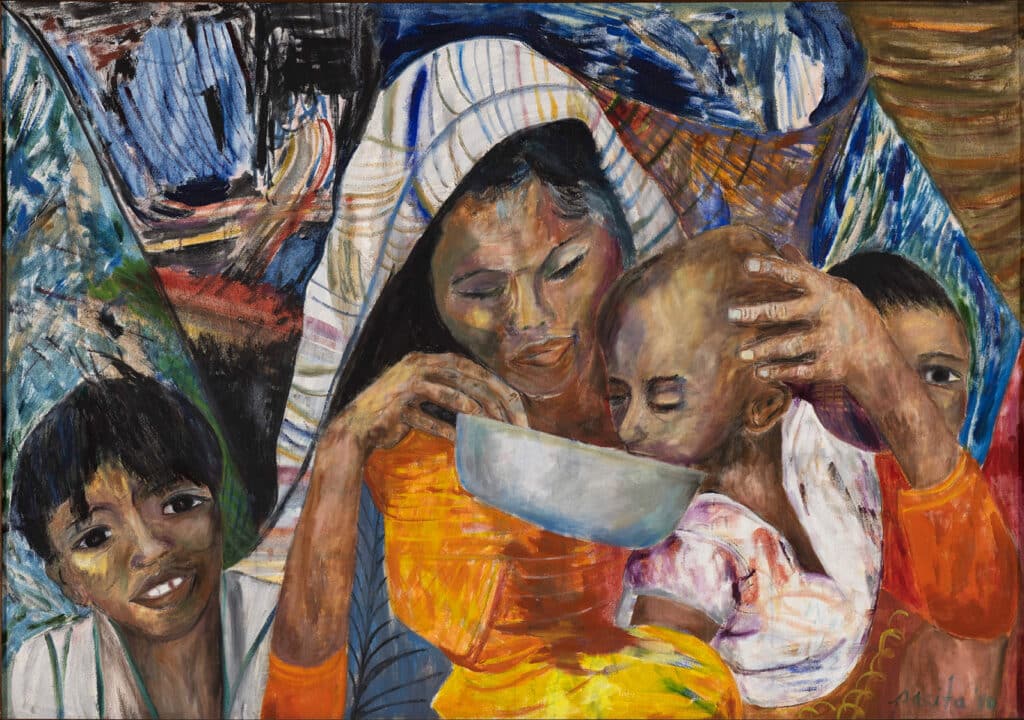
Pacita Abad (Philippines), Water of Life, 1980.
A scientific study from 2017 found that deep childhood traumas can mark a person both physically and psychologically. Trauma reroutes children’s developing nervous systems, causing them to be highly alert and anxious even decades later. This process, the authors write, generates a mechanism called ‘enhanced threat processing’. No wonder studies of children who lived through earlier wars show that they disproportionately suffer from medical conditions, including heart ailments and cancer.
In March 2022, five doctors from Afghanistan, India, Ireland, and Sri Lanka wrote a heartfelt letter to The Lancet in which they reminded the world of the plight of the children of Afghanistan. As of 2019, every child in Afghanistan was born and raised during war. Not one of them had experienced peace. The authors noted that ‘studies on psychotherapeutic interventions in Afghan children and adolescents are rare, and the evidence they have produced is low quality’. So, they proposed an integrated healthcare plan for Afghan children that relied upon telehealth care and non-medical professionals. In another world, the plan could have been debated. Some of the funds that had enriched the arms merchants during that war would have instead been expended to realise this plan. But this is not the way forward in our world.
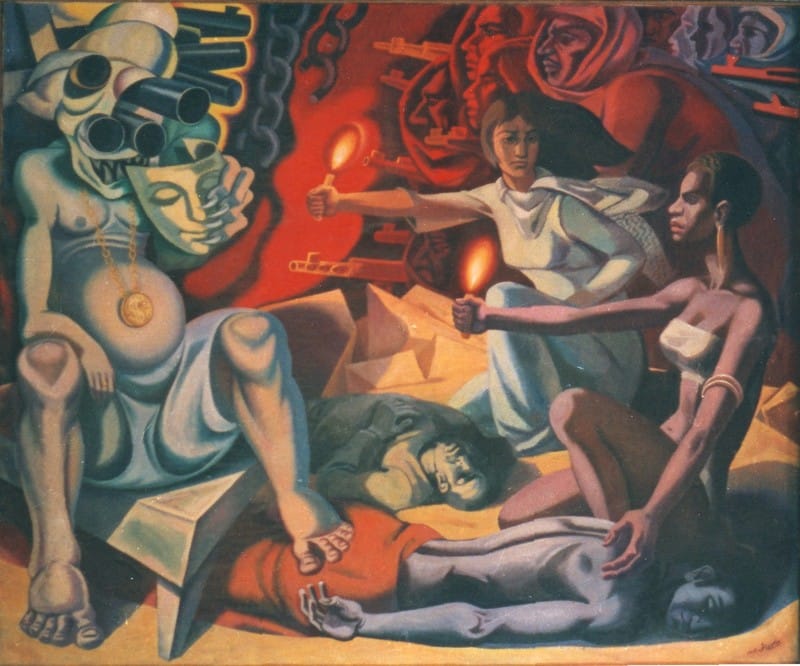
Mahoud Ahmad (Iraq), Title Not Known (Ahmad 9), 1976.
The statement about arms merchants is not made idly. According to a December 2024 fact sheet from the Stockholm International Peace Research Institute (SIPRI), the world’s top 100 largest arms-producing and military services companies increased their combined arms revenues by 4.2% in 2023, reaching a staggering $632 billion. Five U.S.-based companies accounted for nearly a third of these revenues. These 100 companies increased their total arms revenues by 19% between 2015 and 2023. Though the full numbers for 2024 are not yet available, if one looks at the quarterly filings from the main merchants of death, their earnings have spiked even further. Billions for warmongers, but nothing for children who are born into warzones.
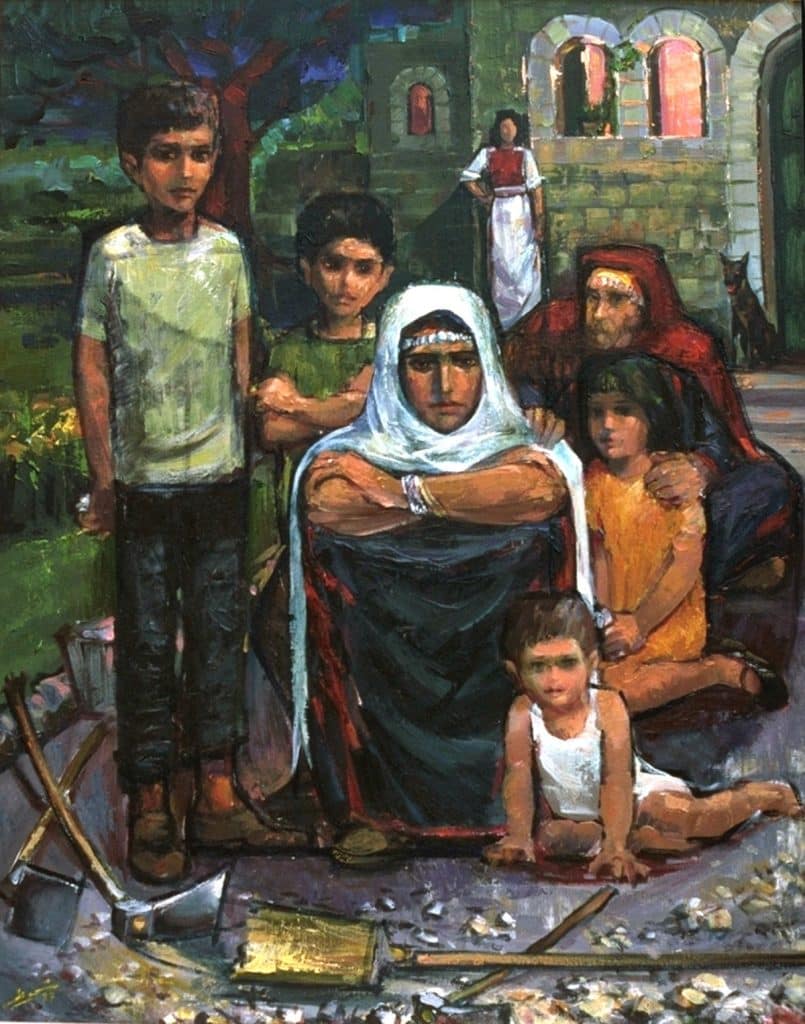
Ismail Shammout (Gaza, Occupied Palestinian Territory), We Will Not Leave, 1987.
In 2014, Israel’s bombardment of Gaza resulted in the death of innocent children. Two incidents in July struck a special chord. First, Israel fired a missile that hit the Fun Time Beach Café (Waqt al-Marah) in Khan Younis at 11:30pm on 9 July. In the café, which was a makeshift structure about thirty metres from the Mediterranean Sea, several people had gathered to watch the 2014 FIFA World Cup semi-final match between Argentina and the Netherlands. They were all serious football fans. The Israeli missile killed nine young people: Musa Astal (age 16), Suleiman Astal (age 16), Ahmed Astal (age 18), Mohammed Fawana (age 18), Hamid Sawalli (age 20), Mohammed Ganan (age 24), Ibrahim Ganan (age 25), and Ibrahim Sawalli (age 28). They never got to watch Argentina win the match in the penalty stage or see Germany win the tournament in a tense match a few days later.
Israel’s bombing, meanwhile, was unabated. Three days later, on 16 July, several boys were playing football–as if replaying the World Cup on Gaza’s beach–when an Israeli navy ship fired first at a jetty and then, as the boys ran from the explosion, at the boys. Israel killed four of them–Ismail Mahmoud Bakr (age 9), Zakariya Ahed Bakr (age 10), Ahed Atef Bakr (age 10), and Mohammad Ramez Bakr (age 11)–and wounded others.
The 2014 Israeli barrage on Gaza killed at least 150 children in total. When the human rights group B’Tselem produced an advertisement to broadcast the names of the children on Israeli television, the Israel Broadcast Authority banned it. The British poet Michael Rosen responded to the killings and the ban with the beautiful poem ‘Don’t Mention the Children’.
Don’t mention the children.
Don’t name the dead children.
The people must not know the names
of the dead children.
The names of the children must be hidden.
The children must be nameless.
The children must leave this world
having no names.
No one must know the names of
the dead children.
No one must say the names of
the dead children.
No one must even think that the children
have names.
People must understand that it would be dangerous
to know the names of the children.
The people must be protected from
knowing the names of the children.
The names of the children could spread
like wildfire.
The people would not be safe if they knew
the names of the children.
Don’t name the dead children.
Don’t remember the dead children.
Don’t think of the dead children.
Don’t say: ‘dead children’.
Yes, the children have names. We will continue to name all those whose names we can remember. We will not forget them. In September 2024, the Palestinian Ministry of Health released an updated list of the names of Palestinians killed in the U.S.-Israeli genocide from October 2023 to August 2024. On that list are 710 newborns whose ages are listed as zero. Many of them had only just been named.
Though the list is too long to reproduce here, the story of Ayssel and Asser Al-Qumsan is emblematic. On 13 August 2024, Mohammed Abu Al-Qumsan left his apartment in Deir al-Balah, within central Gaza’s ‘safe zone’, to register the birth of his twin children Ayssel and Asser. He left the twins with their mother, Dr. Jumana Arfa (age 29), who had given birth to them three days earlier at Al-Awda Hospital in Nuseirat. Dr. Jumann Arfa was a pharmacist trained at Al-Azhar University in Gaza. A few days before giving birth to her children, she posted on Facebook about Israel’s targeting of children, citing an interview with Jewish-American surgeon Dr. Mark Perlmutter on a powerful CBS News segment called Children of Gaza. When Mohammed returned from registering the twins, he found that their home had been destroyed and that his wife, newborn children, and mother-in-law had all been killed in an Israeli strike.
Ayssel Al-Qumsan.
Asser Al-Qumsan.
We must name the dead children.
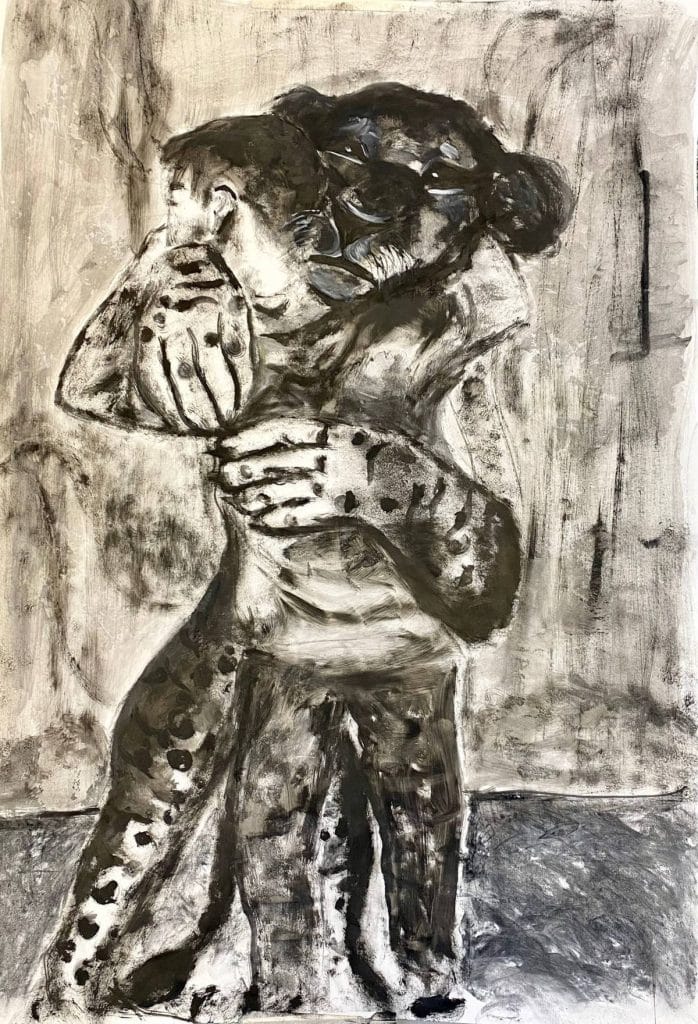
Malak Mattar (Gaza, Occupied Palestinian Territory), Tiger Embracing the Boy, 2024.
Warmly,
Vijay

